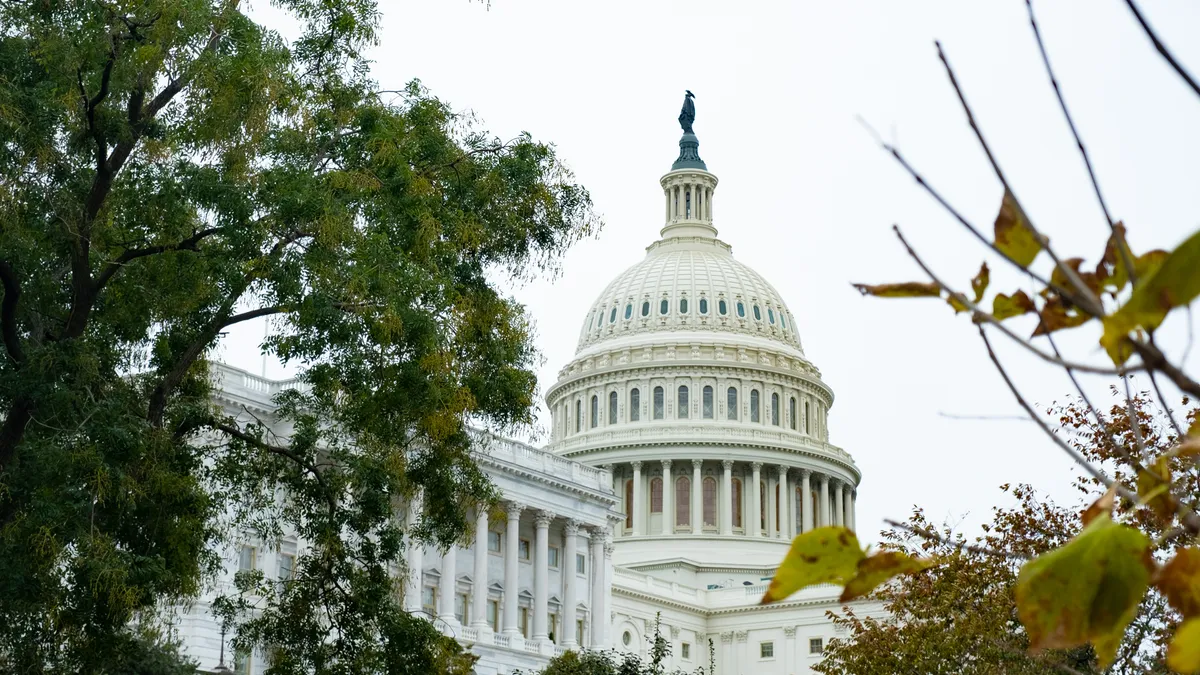Dive Brief:
-
House Democrats' new coronavirus relief bill reserves nearly $39 billion for postsecondary education, a slight increase from their original plan passed in May.
-
But the revised Health and Economic Recovery Omnibus Emergency Solutions (HEROES) Act, a $2.2 trillion package, likely won't pass, as it still contains provisions unpalatable to the White House and Senate Republicans.
-
The proposal comes as the American Council on Education (ACE) says at least $120 billion is needed to address the sector's financial woes.
Dive Insight:
The House approved the original iteration of the HEROES Act this spring, a $3 trillion proposal immediately written off Senate Republicans, who said it included too many elements unrelated to the pandemic.
The bill pegs about $27 billion for public colleges out of a $208 billion state stabilization fund that would support K-12 and higher education. States would allocate funds to those institutions based on enrollment, favoring those with more Pell Grant recipients, a proxy for financial need. It excludes students taking only distance learning courses before the pandemic.
That funding could be used to train colleges' faculty and staff on the technology and services needed for online classes, or to defray general expenses that have emerged from the health crisis. It could also be passed on to students in the form of emergency aid.
To receive the money, however, states would need to keep postsecondary spending levels the same as the 2019 fiscal year through the 2022 fiscal year. That's likely a difficult feat, experts told Education Dive this spring.
A separate pot of nearly $12 billion would benefit other types of institutions. That includes $3.5 billion for historically Black colleges, $7 billion for private, nonprofit schools and $1.4 billion for institutions "with unmet need related to coronavirus," including those that offer exclusively distance education.
ACE, which deemed Congress' $14 billion for higher ed in the Coronavirus Aid, Relief and Economic Security (CARES) Act, "woefully inadequate," asked House leaders in a letter last week for $120 billion on behalf of more than 40 educational groups.
Ted Mitchell, ACE's president, explained its member colleges have financial losses and expenses in excess of that sum, primarily from virus testing, contact tracing and treatment efforts, as well as virtual learning.
The bill is unlikely to pass the Republican-led Senate, but is meant to restart stalled negotiations between it and House Democrats prior to the November elections, news media have reported.














